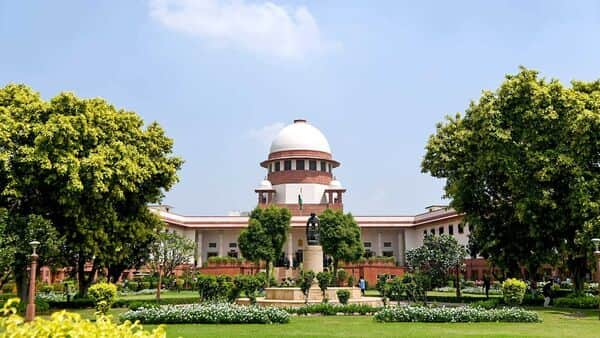(A) Criminal Procedure Code, 1973, Section 482 – Penal Code, 1860, Sections 406, 504 and 506 – Quashing of complaint – No criminal case made out – Dispute between the parties centred around the rate at which the assigned work was to be done – Neither in the petition of complainant nor in the initial deposition of the two witnesses (that includes the complainant) the ingredients of the offence under Section 405 of the 1860 Code surfaced – Such commercial disputes over variation of rate cannot per se give rise to an offence under Section 405 of the 1860 Code without presence of any aggravating factor leading to the substantiation of its ingredients – Do not find any material to come to a prima facie finding that there was dishonest misappropriation or conversion of any material for the personal use of the appellant in relation to gas supplying work done by the respondent no.2 – The said work was done in course of regular commercial transactions. -It cannot be said that there was misappropriation or conversion of the subject property, being dissolved acetylene gas which was supplied to the factory for the purpose of battery manufacturing at EIL – The dispute pertains to the revision of rate per unit in an ongoing commercial transaction – On the basis of these materials, it cannot be said that there was evidence for commission of offence under Section 405/406 IPC. (Para 14)
(B) Criminal Procedure Code, 1973, Section 482 – Penal Code, 1860, Sections 406, 504 and 506 – Quashing of complaint – Civil Dispute – Quashed – Contention on behalf of the appellant that the complaint made against the appellant does not disclose any criminal offence and at best, it is a commercial dispute, which ought to be determined by a Civil Court–Held that allegations made by the complainant do not give rise to the offences for which the appellant has been summoned for trial – A commercial dispute, which ought to have been resolved through the forum of Civil Court has been given criminal colour by lifting from the penal code certain words or phrases and implanting them in a criminal complaint – The learned Magistrate here failed to apply his mind in issuing summons and the High Court also failed to exercise its jurisdiction under Section 482 of the 1973 Code to prevent abuse of the power of the Criminal Court – It is true that the appellant could seek discharge in course of the proceeding itself before the concerned Court, but find that no case at all has been made out that would justify invoking the machinery of the Criminal Courts – The dispute, per se, is commercial in nature having no element of criminality – Allegation of criminal intimidation against the accused is made in the complaint statements made by the appellant, no particulars thereof have been given – Both in the complaint petition and the initial deposition of one of the witnesses, there is only reproduction of part of the statutory provision giving rise to the offence of criminal intimidation – This would constitute a mere bald allegation, short of any particulars as regards to the manner in which threat was conveyed- allegations made by the complainant do not give rise to the offences for which the appellant has been summoned for trial – Impugned judgment liable to be set aside the Criminal Complaint Case No.7990 of 2020 as also the summoning order issued on 18.08.2021 liable to be quashed. (Para 17 to 21)
SUPREME COURT OF INDIA
2024 STPL(Web) 71 SC
[2024 INSC 72]
Sachin Garg Vs.State Of U.P. & Anr.
Criminal appeal no. 497 of 2024 (Arising out of Petition for Special Leave to Appeal (Criminal) No. 4415 OF 2023)-Decided on 30-1-2024
https://stpllaw.in/wp-content/uploads/2024/04/2024-STPLWeb-71-SC.pdf







